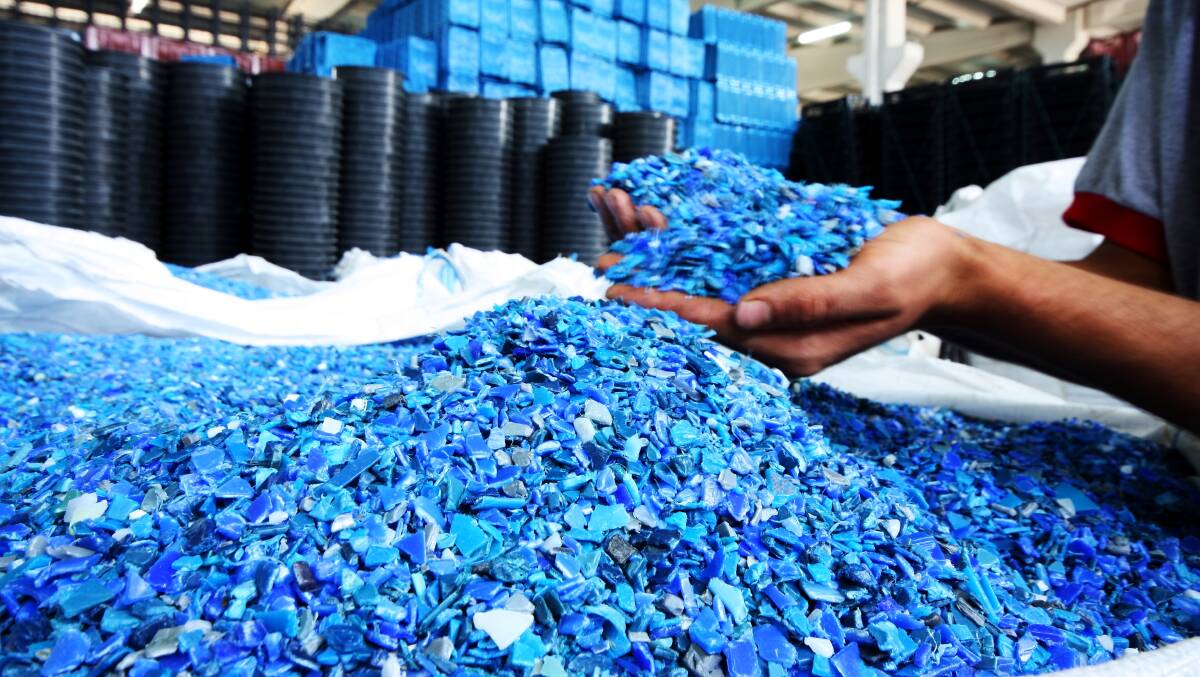
Plastics in agriculture have increased productivity and efficiencies throughout the sector, reducing labour-hours and chemical sprays on farm, retaining soil moisture and lowering food production wastage. However, the long-term environmental sustainability of using plastics has rightfully undergone reassessment by farmers, government and the community.
Subscribe now for unlimited access to all our agricultural news
across the nation
or signup to continue reading
A major advancement in agriculture’s relationship with plastics has been the introduction of recycling systems for clean plastics used by the sector. These clean plastics make up a large percentage of plastics used and include irrigation tape, plastic packaging and branded chemical containers. Schemes are now operating across Queensland to collect agricultural plastic packaging and limited plastic products.
Examples of agricultural plastic packaging recycling schemes have been pioneered by Incitec Pivot and Impact Fertilisers who have facilitated the collection of their clean product packaging through Farm Waste Recovery. This scheme allows farmers to return fertiliser bags to selected retailers, resellers and local council depots. As at 31 January 2017, around 786,200 kg of one-tonne plastic fertilizer sacks had been collected by Farm Waste Recovery – enough plastic to make nearly 4,000 park benches or similar products.
It is time that other agricultural product suppliers such as seed, feed and mineral manufactures follow the fertiliser industry’s lead and demonstrate their combined stewardship with farmers and implement reuse or recycling schemes for their packaging.
In addition to recycling opportunities directly through retailers,Queensland farmers in six regional council areas – Lockyer Valley Regional Council, Cassowary Regional Council, Southern Downs Regional Council, Mareeba Shire Council, Bundaberg Regional Council and Whitsunday Regional Council– have access to council depots that collect clean trickle/drip irrigation tape. These regional collections are serviced through RDTs recycling program.
Other councils are also collecting eligible non-returnable chemical containers as part of the DrumMUSTER scheme. In the last financial year (2015-16), DrumMUSTER collected 410,447 containers from Queensland.
Uptake in these regions by farmers has been positive with both industry and community reaping the benefits. Other regional councils with agricultural industries should consider the mutual benefits of such schemes and implement consolidation opportunities to promote recycling at their depots.
Resellers and local councils are critical stakeholders in the provision of drop-off and bulking opportunities for recycling agricultural-plastics. Many farms do not have sufficient consumption of these types of packaging and products to warrant an individual collection.
The Queensland Farmers’ Federation (QFF) is working with the Department of Environment and Heritage Protection to stimulate opportunities for real on farm and localized solutions for sustainable management of agricultural plastics. Discussions are also underway with local governments to implement recycling programs like those that have already been successful.
QFF is continuing to work constructively with its industry members, other agricultural partners and local communities to develop projects that help realise their aspirations for proper environmental stewardship. After all, farmers are Queensland’s frontline environmentalists, responsibly managing 83 per cent of the state’s valuable land resources and often have the most to gain through sustainable practices such as recycling plastics.
I encourage those farmers who are not yet engaged in one of the plastic recycling programs to talk to your reseller and your local council about opportunities to get involved.
Details of existing opportunities can be found on the QFF website. – Stuart Armitage, QFF President

